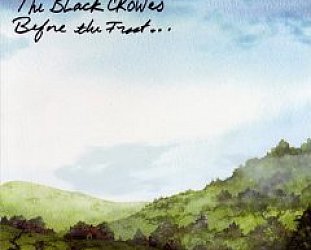Graham Reid | | 1 min read
Blanket Over the Sky

From his home on the Kapiti Coast, Graeme Downes sounds much as he ever did: astute, casually intellectual, peppering his digressive conversation with droll social and political observations, and noting his current reading has been Shakespearean scholar George Wilson Knight's 1948 essay Christ and Nietzsche.
“I'm also fond of Shostakovich's letters to [critic] Isaac Glickman. They're very polite in the first half of the book because it's the Soviet Union era and you don't trust anybody. Then they get more and more frank,” he laughs.
This is familiar Downes and it's as if nothing has changed. But just about everything has.
“Yeah, the body's a bit fucked around but the brain's still pretty good,” he says with masterful understatement.
As Dr Graeme Downes, a respected teacher and musicologist at Dunedin's University of Otago, he ran a parallel life steering the much admired rock band the Verlaines, named for the 19th century French Symbolist poet.
He retired from public life almost four years ago after a diagnosis of oesophageal cancer. He and Jo -- his wife of 42 years who managed the Verlaines' career – moved to Otaki where they own a house and to be close to their two daughters and grandchildren who live in Wellington.
“It's been three years since the operation,” he says flatly, “although [the cancer] could always come back. I'm very much a reduced human being but I've had three years and am very grateful for that. But there's no point in sugar-coating it.
“I can hardly pick up my Gibson [guitar] these days because it's too heavy so I'm never going to be able to thrash around like I used to.”
And in the Verlaines he certainly did that.
In his memoir Positively George Street, musician Matthew Bannister – of the Verlaines' contemporaries Sneaky Feelings – referred to Downes as “smouldering and Byronic” and “he whipped himself into an expressionistic frenzy on stage and dropped literary references by the bucketload”.
An early review described them as “a hybrid between Dylan and the Velvet Underground,” impeccable references.
Dunedin musician Julian Temple, a student in Downes' ground-breaking rock music course at university, said he was “intimidated by him because he had such presence” but as a songwriter “he made me think outside the box.”
Downes – whose PhD is for his internationally admired research on the symphonies of Gustav Mahler – says emphatically he doesn't miss the academic world.
With ease and alacrity he seemed to juggle his parallel careers . . .
.
To read the rest of this extensive interview with Graeme Downes in the Listener, subscribe to the magazine's online version for just $1 per week. Here.





post a comment